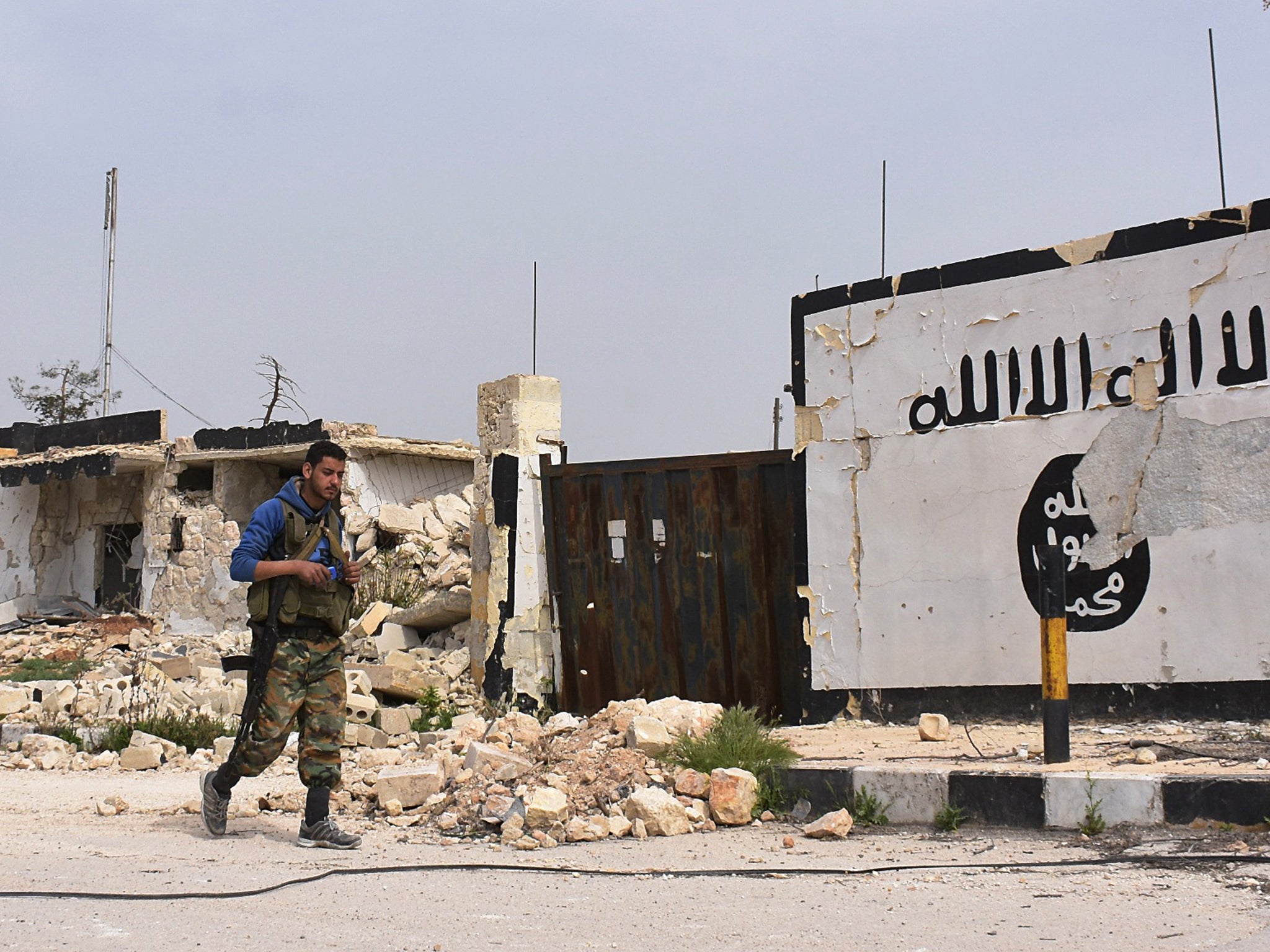Assad has forced his secret police into the army to fight for Syria – and it will bring him closer to Trump
The very embodiment of the regime is now on the front line. This is Washington's path to Assad


Your support helps us to tell the story
From reproductive rights to climate change to Big Tech, The Independent is on the ground when the story is developing. Whether it's investigating the financials of Elon Musk's pro-Trump PAC or producing our latest documentary, 'The A Word', which shines a light on the American women fighting for reproductive rights, we know how important it is to parse out the facts from the messaging.
At such a critical moment in US history, we need reporters on the ground. Your donation allows us to keep sending journalists to speak to both sides of the story.
The Independent is trusted by Americans across the entire political spectrum. And unlike many other quality news outlets, we choose not to lock Americans out of our reporting and analysis with paywalls. We believe quality journalism should be available to everyone, paid for by those who can afford it.
Your support makes all the difference.“Silence means approval,” the minister said to me. And the Syrian minister meant what he said. Rex Tillerson, Trump’s Secretary of State, was silent.
And that was the message. Bashar al-Assad is no longer America’s target. Donald Trump, or whoever runs Trump, has decided that Assad will stay on as President of Syria. Silence is approval. Is this to please Vladimir Putin? Or is this to accept reality: that Bashar al-Assad will remain president of Syria? Either way, it is a fact. Barring ill health or assassination, Assad will continue to hold office. He will continue to be the leader. He will remain.
What does that say to the UN, the EU, the "world community", as we like to call it? Well, not much. Boris Johnson said as much last month, with that shrug of the shoulders that he must have learned from Arthur Balfour.
But there are changes afoot in Syria which citizens of that sad and terrifying, magnificent, powerful country will realise. The first is that, despite the appalling losses (75,000 soldiers, it would seem) Syria’s army is winning. It has taken back eastern Aleppo, it has engineered the departure of almost every armed man from Homs, and it has taken back most of Damascus. Barrel bombs will have to wait for war crimes trials.
Did it use gas in Idlib province? Previous claims have proved elusive. Did the infamous gas attack in Damascus come from Bashar’s arsenal? Or from the rebels’ arsenal (from Libya, via Turkey, of course)? A gas assault on one village in the north of Syria struck the families of soldiers, but there are no assurances.
There is, however, one directive that went out to the state intelligence services, the ‘mukhabarat’, the secret police. You, too, must fight for your country. This stunning order – and it could only be approved by the president – means that the men who safeguard the regime have been sent to the front. This has not been a sudden or immediate instruction. It has happened over a long period, almost since the Syrian War began. But it does mean that the men who have interrogated Syrian citizens must now fight for the lives of those same citizens, that they now have to prove their courage on the battlefield instead of the dungeon.
These are the momentous changes now taking place in Syria. The very embodiment of the regime is now on the front line. It may prove to be a transformative experience for them. I know one ‘mukhabarat’ officer who has taken to military life; he prefers to be a Syrian soldier than an intelligence man. It was his choice. Perhaps a wise choice.
So, what does this mean for the West, for America, for us? It will almost certainly mean closer relations between Assad and the Americans. For a long time now, America’s intelligence men in Beirut have been trying to understand the future of the Assad government, realising – eventually – that it is likely to survive, and that, if it’s not exactly what the Syrian minister said, silence gives acceptance. After all, the US now approves of el-Sissi’s regime in Egypt, Trump likes Sissi and will go on (so it seems) pumping millions of dollars into Sissi’s regime. And Sissi’s ‘mukhabarat’ sent to Syria, earlier this year, a team of its own intelligence officers to talk to their Syrian opposite numbers.
So there is Washington’s path to Assad. Putin and Trump have one policy in common: the destruction of Isis. For years, the State Department and the Pentagon have been claiming that the Syrian army is not fighting Isis, that it only wishes to destroy the foot soldiers of the Free Syrian Army. It did fight – and lose, and then win again – against Isis in Palmyra. In eastern Aleppo province, the army has been fighting – and winning – against Isis. These battles have been fought with Russian air strikes as well as Syrian air strikes.
But they have succeeded in turning Isis around. Right now, the city of Raqqa – Isis' "capital" in Syria – seems likely to fall to Kurdish and US-supported forces, which is not what Assad wants. Syria wants to take back its own city. Putin and Trump might like to have a chat about this.
At present, it seems an unlikely task. Raqqa is a city too far. The larger city of Deir ez-Zour is bigger, more important, more famous. But a Syrian capture of Raqqa would tell us a lot about America’s relations with Russia.